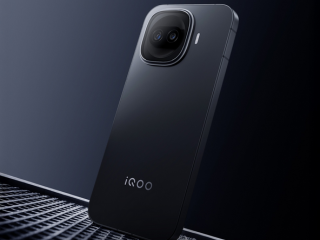WhatsApp Companion Mode for iPhone Now Rolling Out: How to Link Multiple iOS devices
WhatsApp users on iOS can now link their iPhone to their primary smartphone.

Photo Credit: WABetaInfo
You can follow a five-step process to link your iPhone to another device running WhatsApp
WhatsApp Companion Mode has begun to roll out to iOS users, a month after the feature was announced by the messaging platform. The companion mode allows you to link up to four other devices, including smartphones. Messages received on the primary smartphone are also delivered on these linked devices. While WhatsApp beta testers on Android had access to the companion mode when it was announced, support for the feature on iOS is now rolling out widely as part of the latest update.
The rollout of WhatsApp Companion Mode on iOS was spotted by feature tracker WABetaInfo. The Meta-owned messaging service is now rolling out an update to WhatsApp for iOS 23.10.76 via the App Store, which adds an option to link your iPhone with another, "primary" smartphone.
The changelog for the WhatsApp for iOS 23.10.76 update states that the feature is rolling out and you can log out of your existing WhatsApp account and set up your iPhone as a linked device. You will need to have WhatsApp installed and registered with a phone number on another smartphone.
WhatsApp's companion mode feature has cross platform support, which means you can link your iPhone to your existing WhatsApp account on Android and vice versa. You will have limited access to your WhatsApp account on a secondary device, but you can access chats and archived chats on any linked device.
In order to link your iPhone running the latest version of WhatsApp to another smartphone, you can follow these steps:
- Open WhatsApp on your iPhone after installing or updating to WhatsApp for iOS 23.10.76.
- Tap Or link this device to an existing account and wait for a QR code to be displayed.
- Open WhatsApp on your primary smartphone and tap the settings (iOS) or three-dot menu icon (Android) and tap on Linked Devices.
- Choose the option Link with QR code.
- Scan the QR code displayed on your iPhone using your other smartphone to complete the linking process.
Get your daily dose of tech news, reviews, and insights, in under 80 characters on Gadgets 360 Turbo. Connect with fellow tech lovers on our Forum. Follow us on X, Facebook, WhatsApp, Threads and Google News for instant updates. Catch all the action on our YouTube channel.
Related Stories
- Samsung Galaxy Unpacked 2025
- ChatGPT
- Redmi Note 14 Pro+
- iPhone 16
- Apple Vision Pro
- Oneplus 12
- OnePlus Nord CE 3 Lite 5G
- iPhone 13
- Xiaomi 14 Pro
- Oppo Find N3
- Tecno Spark Go (2023)
- Realme V30
- Best Phones Under 25000
- Samsung Galaxy S24 Series
- Cryptocurrency
- iQoo 12
- Samsung Galaxy S24 Ultra
- Giottus
- Samsung Galaxy Z Flip 5
- Apple 'Scary Fast'
- Housefull 5
- GoPro Hero 12 Black Review
- Invincible Season 2
- JioGlass
- HD Ready TV
- Laptop Under 50000
- Smartwatch Under 10000
- Latest Mobile Phones
- Compare Phones
- Realme P4 Power 5G
- Vivo X200T
- Realme Neo 8
- OPPO Reno 15 FS
- Red Magic 11 Air
- Honor Magic 8 RSR Porsche Design
- Honor Magic 8 Pro Air
- Infinix Note Edge
- HP HyperX Omen 15
- Acer Chromebook 311 (2026)
- Lenovo Idea Tab Plus
- Realme Pad 3
- HMD Watch P1
- HMD Watch X1
- Haier H5E Series
- Acerpure Nitro Z Series 100-inch QLED TV
- Asus ROG Ally
- Nintendo Switch Lite
- Haier 1.6 Ton 5 Star Inverter Split AC (HSU19G-MZAID5BN-INV)
- Haier 1.6 Ton 5 Star Inverter Split AC (HSU19G-MZAIM5BN-INV)

















